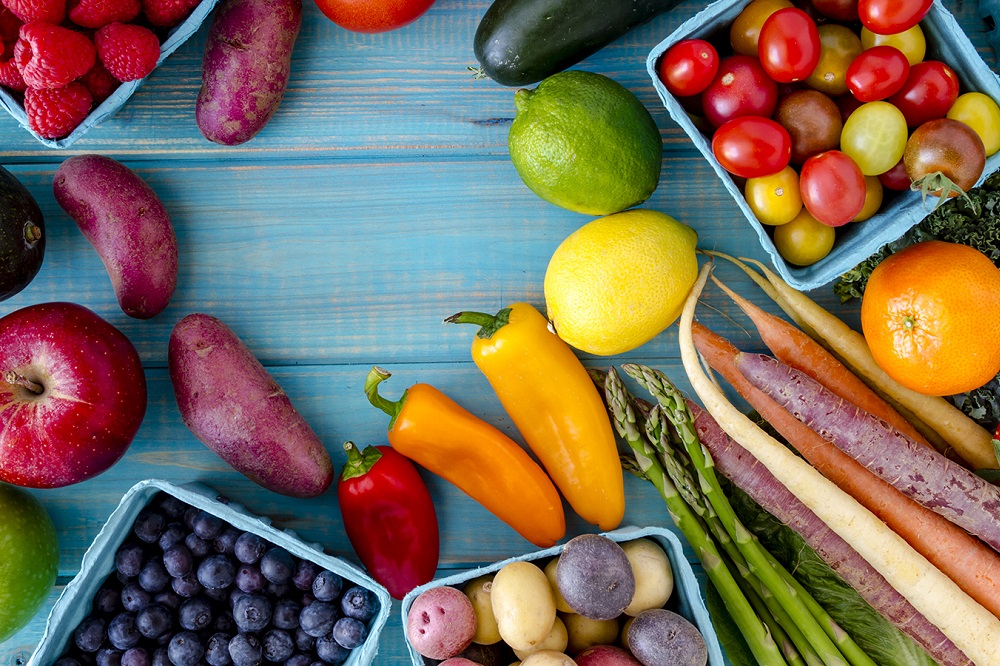Discover the properties of vitamin B5, its benefits, its main sources, recommended nutritional requirements and the risks involved in case of deficiency or overdosage.

Properties of vitamin B5
Vitamin B5 is a water-soluble vitamin. Like all vitamins of the B complex, vitamin B5 is present in our bodies to transform into coenzyme A and act on the nervous system and adrenal glands.
This content is part of the guide Blooness, the guide to the ideal human diet, the summary of which you can find here 🌱🥑
Known as an "anti-stress vitamin", it is also involved in the formation and regeneration of skin and mucous membranes. It plays an essential role in the regulatory mechanisms of insulin, adrenalin and porphyrin, and is also involved in the metabolism of lipids.

Why is vitamin B5 essential to the body?
- For healthy skin and hair
Vitamin B5 is involved in tissue repair and growth.. It is recognized as having regenerating and repairing properties for skin, nails and hair. It is also one of the essential vitamins in the skin healing process, in the event of injury.
Take control of your diet and never miss another chapter of the guide by subscribing to the Blooness newsletter 🙌
- For steroid and hormone synthesis
Vitamin B5 ensures the synthesis of steroids (cholesterol, bile salts) and hormones (adrenalin, cortisol, etc.).

- To intervene in metabolisms
Pantothenic acid plays a key role in lipid metabolism, carbohydrates and proteins. It participates in the composition of coenzyme 1 and is fully involved in several physiological processes.
- For good intellectual functioning and physical performance
The best food sources of vitamin B5
Visit vitamin B5 is present in almost all foods. But some foods contain high levels, such as offal, certain cheeses, eggs, meat and poultry. Most breakfast cereals also contain a good quantity of vitamin B, including B5. Wheat germ and brewer's yeast can also provide a good vitamin B5 supplement.

Foods richest in vitamin B5
|
Food |
Vitamin B5 content (mg/100g) |
| Cooked poultry offal |
3 – 4 |
|
Enriched breakfast cereals |
2,6 – 5,1 |
| Crottin de Chavignol |
2,15 |
|
Button mushroom |
2 |
| Roast duck |
1,5 |
|
Camembert cheese |
1,35 |
| Turkey, dark meat |
1 |
|
Veal shoulder, braised |
2 |
| Cooked lamb, heifer or poultry liver |
6,7 – 7,7 |
|
Brewer's yeast |
9 |
| Atlantic cod, dehydrated and salted |
2 |
|
Egg |
1,7 |
| Hard-boiled egg |
1 |
|
Roast chicken |
1 |
| Pork kidneys, braised |
3 |
|
Cooked veal, lamb or pork kidney |
2,9 – 5,6 |
| Beef or lamb kidneys, braised |
2 |
|
Baked salmon |
2 |
| Smoked trout |
2 |
Our daily vitamin B5 requirements
Daily vitamin B5 requirements are relatively low (6 mg/day). In fact, all foods contain vitamin B5. All it takes is a healthy, balanced diet to cover your daily needs.
Nutritional references
|
Age/State |
Recommended nutritional intake (mg/day) |
|
Infants from 0 to 12 months |
1,7 à 1,8 |
| Children aged 1 to 3 |
2,5 |
|
Children aged 4 to 6 |
3 |
| Children aged 7 to 9 |
3,5 |
|
Children aged 10 to 12 |
5 |
| Teenagers aged 13 to 15 |
4,5 à 5 |
|
Teenagers aged 16 to 19 |
5 |
| Pregnant women |
6 |
|
Nursing mothers |
7 |
| Adults |
5 |
Under- and overdosing on vitamin B5: the risks
Pure vitamin B5 deficiency is rare. Nevertheless, certain signs, such as fatigue, burning of the extremities, muscle weakness, gastrointestinal pain or certain aches and pains, may indicate pantothenic acid deficiency.
What's more, vitamin B5 is hardly considered toxic. At worst, high doses can lead to diarrhoea. On the other hand, certain forms of vitamin B5, such as panthenol or dexpanthenol, can cause skin rashes.

When should I take vitamin B5 supplements?
Your doctor will certainly recommend vitamin B5 supplements if :
- You need to reduce the cholesterol and triglycerides in your body. A supplement of 600 to 900 mg per day is recommended in this case.
- You suffer from telogen effluvium (abundant, non-localized hair loss). In this case, you'll need a combination of vitamins and amino acids, minerals and fatty acids, as well as checking the level of iron in your body.
- You are experiencing acute or chronic stress. In this case, you'll need to take a supplement of 500 mg to 2 g a day, either by injection or orally.
- You have viral hepatitis A. A supplement of 500 mg per day is required, along with other minerals and vitamins.
In all cases, medical advice is required to avoid contraindications.
With a Blooness diet, rich in animal proteins, eggs and lipids, there's no need, a priori, to supplement vitamin B5.
Next chapter: vitamin B6.
Previous chapter: vitamin B3.

